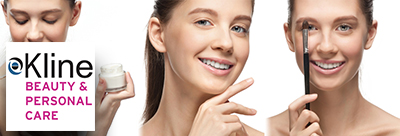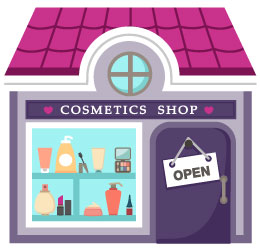According to our recently published Cosmetics & Toiletries USA report, specialty store sales grow at a rate of about 11% in contrast to the overall market’s growth of approximately 4%. This is no surprise considering all of the activity that has taken place, from Sephora’s new TIP initiative to the opening of 100 new and larger Ulta stores from 2014-2015. Brands are also finding that opening their own flagship and subsequent free-standing boutiques in the United States and abroad helps personalize and connect a customer to a brand. Ultimately, this creates a unique brand experience and fortifies the growth of a beauty brand in a highly competitive environment.
In just the past year, L’Oréal-owned NYX has opened 13 of its own locations across malls throughout the United States. Why is this important? As a brand which was one of the first to engage and build its brand loyalty among makeup artists and influencers online, it understands the intense power that interaction and engagement with consumers can have on increasing sales. The new stores not only provide a haven for the entire NYX collection in one place, but also encourage consumers to visit an interactive environment where they can try new products, use in-store apps to build their own palettes, and also allow them to interact with each other by featuring “instafeed” digital walls for people taking selfies using NYX makeup.
While free-standing boutiques were not NYX’s first foray into the retail environment, the U.S. beauty market has seen many successful boutiques that build their brand through their own stores alone. For over 20 years, Bath & Body Works is an example of such a brand that continues to consistently grow and build its customer base through its in-store experiences and promotions. Brands migrating to the United States with a presence in other countries also find that having their own boutiques is the right strategy to build brand awareness.
Brands like Sabon and Rituals are newer to the U.S. scene and building their business through personalized in-store experiences. Both brands launched their products through just their own stores, allowing for an interactive environment with plenty of space for consumers to try on and connect with the products.
Kline’s Boutique Beauty Retailers: Channel Analysis and Opportunities study, due to be published during the fourth quarter of 2016, finds that a brand’s own store experiences is extremely important in this highly competitive environment, where consumers are not as brand loyal as they used to be. A brand’s personality really comes to the forefront when it is the only brand in a store. Everything from music choices to sales associates ultimately plays a role in building a brand’s identity; if effective, this can intimately connect a customer with a brand. For more information regarding this up-and-coming topic, please refer to Boutique Beauty Retailers: Channel Analysis and Opportunities.
By Kelly Alexandre, Analyst Consumer Products
Follow the latest market trends via our Beauty & Personal Care LinkedIn Showcase Page.


